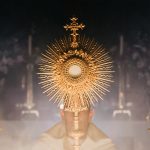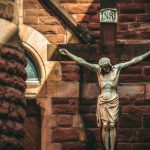Is the Episcopal Church Catholic? Understanding the Roots and Beliefs
The question, “Is the Episcopal Church Catholic?” often arises among those exploring the intricate tapestry of Christian denominations. The Episcopal Church, with its rich history and unique blend of traditions, can sometimes be mistaken for one of the many factions within the broader Catholic Church. In this blog post, we will delve into the origins, beliefs, and practices of the Episcopal Church, shedding light on its Catholicity and exploring the aspects that connect and differentiate it from the Roman Catholic Church.
What is the Episcopal Church?
The Episcopal Church is part of the worldwide Anglican Communion, which originated from the Church of England. While it shares many similarities with Roman Catholicism, it is crucial to understand its distinct identity. The church arose out of the English Reformation in the 16th century, when the Church of England broke away from the authority of the Pope and the Roman Catholic Church. This split led to the development of a unique Anglican tradition that incorporates elements from both Protestant and Catholic practices.
A Historical Overview
To address whether the Episcopal Church is Catholic, we must first look at its historical roots. The Anglican tradition was established in the early 1500s and was marked by the Act of Supremacy in 1534, which declared the King of England the Supreme Head of the Church of England. Over the years, various reformers shaped the church’s beliefs and practices, leading to the development of a liturgical framework that remains influential today.
The Episcopal Church itself was formally established in the United States in the late 18th century, notably through the work of bishops such as Samuel Seabury. With this foundation, the Episcopal Church retained a commitment to traditional worship, sacramental life, and the historic episcopate—elements that would be familiar to Catholics.
The Nature of Catholicity in the Episcopal Church
Sacramental Life
One of the defining characteristics of the Episcopal Church is its emphasis on sacraments, which aligns closely with Roman Catholic beliefs. The Episcopal Church recognizes two primary sacraments: Baptism and Eucharist, along with five other sacramental rites including Confirmation and Marriage. These sacraments are viewed as outward signs of inward grace, a perspective that Catholic theologians would affirm.
The Eucharist, often referred to as Holy Communion, is central to Episcopal worship. In many ways, the understanding of the Eucharist in the Episcopal Church mirrors Catholic doctrine, teaching that Christ is truly present in the eucharistic elements, a concept known as real presence. This sacramental approach fosters a sense of continuity with the broader Catholic tradition.
Apostolic Succession
Another key aspect of Catholicity is the belief in apostolic succession. The Episcopal Church maintains that its bishops are part of an unbroken line of succession going back to the apostles, thereby affirming its connection to the early Church. This apostolic foundation is crucial for those who view the church as a legitimate expression of the universal (catholic) Church.
The Book of Common Prayer
The Book of Common Prayer is central to Episcopal worship. This liturgical book contains prayers, rites, and instructions that guide congregational worship and spiritual practices. Its structure is reminiscent of the Catholic Mass and is designed to foster a communal and sacramental life. This emphasis on structured liturgy and prayer resonates deeply with both traditional Catholic and Protestant believers, enhancing the church’s claim to Catholicity.
Beliefs and Doctrine
Scripture and Tradition
The Episcopal Church values both Scripture and tradition, acknowledging the importance of the Bible while also respecting the historical teachings of the Church. This dual emphasis allows the church to maintain a sense of continuity with its Catholic roots while also engaging with modern theological perspectives.
The church’s theological trajectory often aligns with Catholic doctrine on key moral and ethical issues, though it may diverge in some areas, especially related to contemporary societal norms. Points of divergence can create confusion about the extent to which the Episcopal Church can be deemed Catholic.
Inclusivity and Diversity
While the Episcopal Church embodies many traditional Catholic values, it also embraces a spirit of inclusivity and diversity, often championing social justice movements and progressive causes. This commitment can lead to tensions with more conservative branches of Christianity, particularly the Roman Catholic Church, which can further complicate perceptions of its Catholic identity.
Comparing Episcopal and Roman Catholic Doctrines
Authority and Governance
One significant difference between the Episcopal Church and Roman Catholicism lies in their systems of authority. While Roman Catholics recognize the Pope as the supreme authority in the Church, Episcopalians do not have a singular governing figure. Instead, the Episcopal Church operates through a system of bishops and synods, emphasizing a more democratic approach to church governance.
Salvation and Grace
Both traditions emphasize the necessity of grace for salvation, but their understandings can vary. The Catholic Church teaches that sacraments are essential means of grace, while the Episcopal Church tends to adopt a broader view that includes faith, grace, and works without a rigid structure defining their interplay.
Social Issues and Morality
The Episcopal Church has a reputation for its openness regarding social issues such as LGBTQ+ rights, women’s ordination, and other progressive movements. While the Roman Catholic Church has taken more conservative stances on many of these issues, this contrast can further cloud the question of whether the Episcopal Church should be considered Catholic.
The Role of Community
Parish Life
Community plays a central role in the life of an Episcopal congregation. Worship services, community outreach, and fellowship opportunities create an environment that many find familiar and welcoming, reminiscent of Catholic parish life. This sense of community is integral to the church’s identity and contributes to its appeal beyond the strictly theological.
Ecumenical Relationships
The Episcopal Church actively engages in ecumenical dialogues with both Catholic and Protestant bodies, fostering relationships that promote mutual understanding and cooperation. This collaboration often reinforces the idea that, despite differences, the Episcopal Church shares a commitment to many of the foundational beliefs of Christianity.
Conclusion: Is the Episcopal Church Catholic?
In conclusion, the question “Is the Episcopal Church Catholic?” does not lend itself to a simple answer. The Episcopal Church embodies many hallmarks of Catholicism, including a rich sacramental life, a commitment to apostolic tradition, and a structured liturgical framework. However, it also diverges in governance, social issues, and interpretations of doctrine.
Ultimately, the distinction lies in recognizing the Episcopal Church as a unique entity within the broader Christian family—a church that honors its Catholic heritage while embracing a progressive and inclusive approach to faith. Whether one identifies with the church’s Catholicity may depend on individual beliefs, experiences, and the values one prioritizes in their spiritual journey.
As you explore the Episcopal Church and its relationship to Catholicism, keep in mind the nuances that define both traditions, allowing for a deeper appreciation of the diverse expressions of faith within Christianity.




